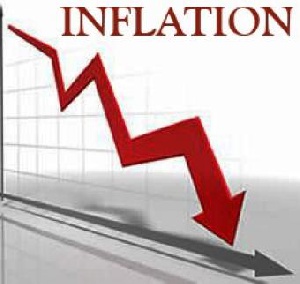Executive Director of the Institute for Fiscal Studies (IFS), Prof Newman Kusi, has described as “ineffective” the central bank's approach to breaking the pace of surging inflation and interest rates in the country; suggesting viable options other than the regular monetary policy adjustments.
He said the instruments that the Bank of Ghana has adopted to get inflation in check are ironically the very ones that are contributing to the continual rise of value indicators.
He argued that the central bank’s decision to increase the cost of capita or mop up liquidity from the system as a way of reducing demand or consumption to sustain the pressure on prices is a misplaced approach.
He explained, “the inflation that we have now is not demand-cost but cost-push inflation - in the sense that the exchange rate is being depreciated and this is a country where everything is imported. So as exchange rates depreciate, the landed cost of imports also goes up and automatically feeds into the price”.
He was speaking on the maiden edition of “Business Time” – a business magazine TV programme powered by the Business and Financial Times.
On the domestic side, he said, as the cost of credit goes up so does the cost of production and pricing of goods and services...and for that reason “one cannot sit down on one side and decide to increase the policy rate to serve as a deterrent for people not to borrow or spend, as they rather feed into the cost of credit and ultimately inflation”.
According to Prof. Kusi, the ideal approach to tackling interest rates and inflation hinges on government's ability to put in place measures that will increase domestic production and make businesses more attractive in terms of profitability and productivity.
Another way, he said, would be to deal with interest rates and inflation more directly; for instance, by increasing reserve requirements for commercial banks and reducing the cost of credit to private business instead of crowding them out of the credit space.
Business News of Tuesday, 23 February 2016
Source: tv3network.com







![NPP Flagbearer, Dr. Mahamudu Bawumia [L] and NDC Flagbearer John Mahama NPP Flagbearer, Dr. Mahamudu Bawumia [L] and NDC Flagbearer John Mahama](https://cdn.ghanaweb.com/imagelib/pics/869/86902869.295.jpg)









